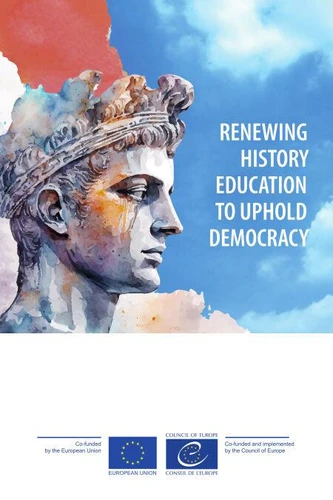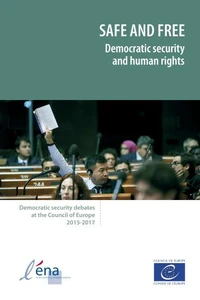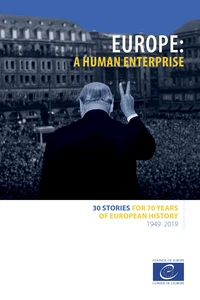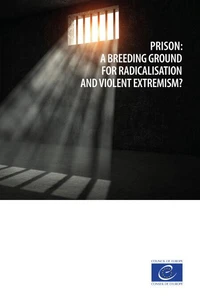Renewing history education to uphold democracy
Par :Formats :
Disponible dans votre compte client Decitre ou Furet du Nord dès validation de votre commande. Le format ePub est :
- Compatible avec une lecture sur My Vivlio (smartphone, tablette, ordinateur)
- Compatible avec une lecture sur liseuses Vivlio
- Pour les liseuses autres que Vivlio, vous devez utiliser le logiciel Adobe Digital Edition. Non compatible avec la lecture sur les liseuses Kindle, Remarkable et Sony
 , qui est-ce ?
, qui est-ce ?Notre partenaire de plateforme de lecture numérique où vous retrouverez l'ensemble de vos ebooks gratuitement
Pour en savoir plus sur nos ebooks, consultez notre aide en ligne ici
- FormatePub
- ISBN978-92-871-9564-7
- EAN9789287195647
- Date de parution01/09/2024
- Protection num.pas de protection
- Infos supplémentairesepub
- ÉditeurCouncil of Europe
Résumé
Uncover how history education can either divide or unite, and explore the Council of Europe's groundbreaking initiatives that have redefined how we teach history, promoting critical thinking and democratic values for a more inclusive future. History education possesses immense power, serving as a doubleedged sword. It can either propagate divisive, harmful narratives or foster critical thinking, understanding and unity.
The Council of Europe's pioneering efforts since its creation have profoundly shaped history education, emphasising multiperspectivity and democratic values. Through comprehensive programmes and projects, they have reformed curricula, promoted critical historical inquiry and introduced innovative teaching practices. Today, initiatives like the Observatory on History Teaching in Europe and HISTOLAB continue this legacy, addressing contemporary challenges to enhance history education.
This publication delves into these efforts featuring insightful articles from four HISTOLAB fellows, exploring the intersection of digital innovation, inclusivity and curricular reform in history education.
The Council of Europe's pioneering efforts since its creation have profoundly shaped history education, emphasising multiperspectivity and democratic values. Through comprehensive programmes and projects, they have reformed curricula, promoted critical historical inquiry and introduced innovative teaching practices. Today, initiatives like the Observatory on History Teaching in Europe and HISTOLAB continue this legacy, addressing contemporary challenges to enhance history education.
This publication delves into these efforts featuring insightful articles from four HISTOLAB fellows, exploring the intersection of digital innovation, inclusivity and curricular reform in history education.
Uncover how history education can either divide or unite, and explore the Council of Europe's groundbreaking initiatives that have redefined how we teach history, promoting critical thinking and democratic values for a more inclusive future. History education possesses immense power, serving as a doubleedged sword. It can either propagate divisive, harmful narratives or foster critical thinking, understanding and unity.
The Council of Europe's pioneering efforts since its creation have profoundly shaped history education, emphasising multiperspectivity and democratic values. Through comprehensive programmes and projects, they have reformed curricula, promoted critical historical inquiry and introduced innovative teaching practices. Today, initiatives like the Observatory on History Teaching in Europe and HISTOLAB continue this legacy, addressing contemporary challenges to enhance history education.
This publication delves into these efforts featuring insightful articles from four HISTOLAB fellows, exploring the intersection of digital innovation, inclusivity and curricular reform in history education.
The Council of Europe's pioneering efforts since its creation have profoundly shaped history education, emphasising multiperspectivity and democratic values. Through comprehensive programmes and projects, they have reformed curricula, promoted critical historical inquiry and introduced innovative teaching practices. Today, initiatives like the Observatory on History Teaching in Europe and HISTOLAB continue this legacy, addressing contemporary challenges to enhance history education.
This publication delves into these efforts featuring insightful articles from four HISTOLAB fellows, exploring the intersection of digital innovation, inclusivity and curricular reform in history education.






















